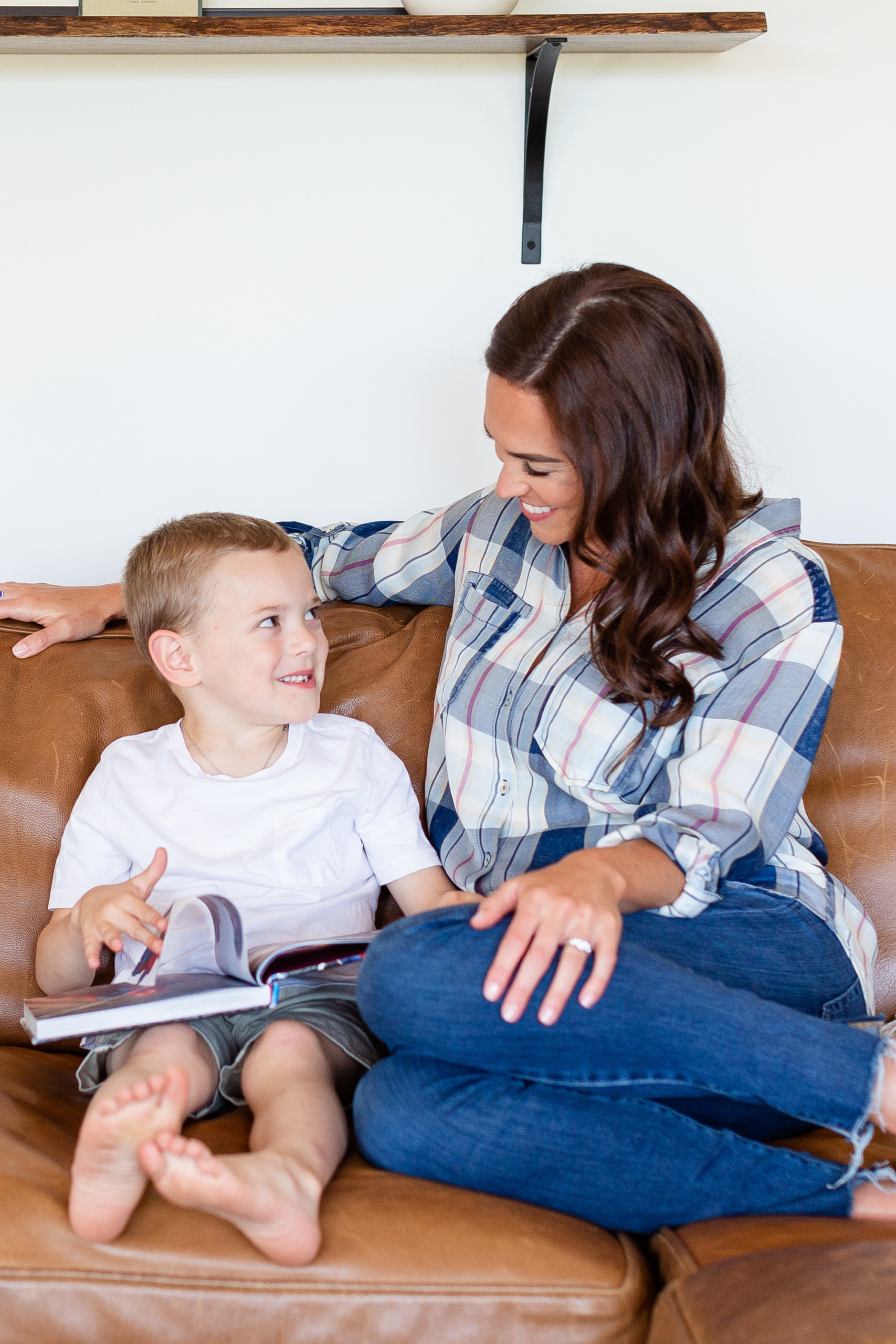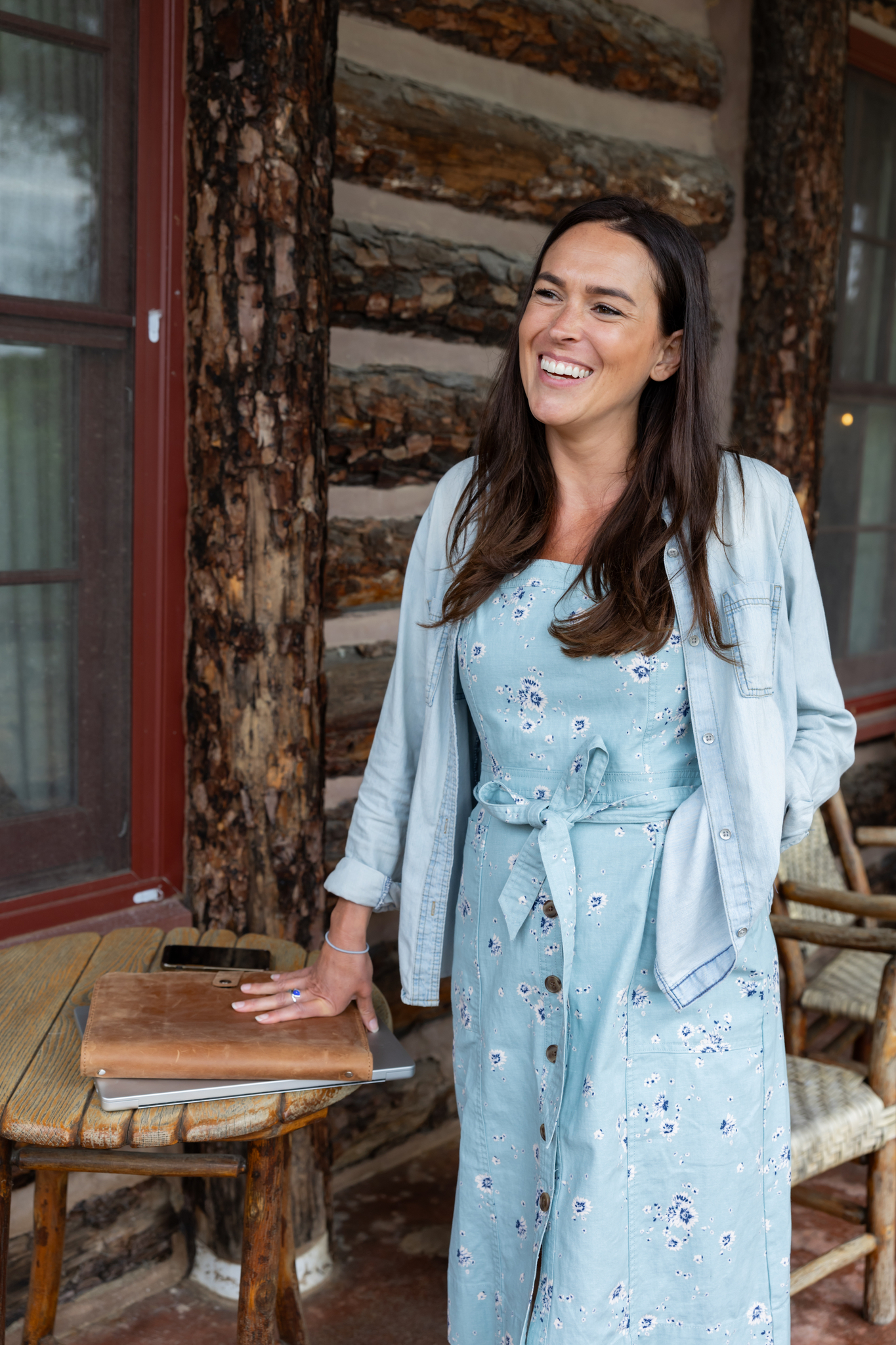From a young age, the words we say directly impact our thoughts, our feelings, and our actions and can ultimately affect the lens through which we see the world.
In today’s episode, I want to talk with you about something that’s been a work in progress in our home and that is – how words matter. I want to share with you specific phrases that are heavily discouraged in our home, why we discourage them, in what ways we redirect our kids to say something else instead, and the meaning behind it.
IN THIS EPISODE, WE COVER:
[1:47] Words Deeply Matter
There was a weight-loss study conducted by Vanessa Patrick, with a large group of women who were looking to lose weight. They all had the same workout regimen and the same meal plan. But, one group of women were tasked with saying the phrase: I can’t eat that, when presented with foods that were not a part of their meal plan; the other group was tasked with saying: I don’t eat that. In the first group, only 10% of them stuck to their plan and saw positive results. However, in the other group. 80% of them stuck to their plan and saw positive results. Words deeply matter.
[3:52] We All Have Some Unlearning to Do
We don’t really think about or notice the words we say most of the time, but our words directly impact our thoughts, our feelings, and our actions. Now, at 33 years old, I realize that I have a lot of unlearning to do, both from the language I’d hear but subsequently, from the language I would use as well. I don’t want my kids to have to unlearn a lifetime of nonsense, so we are putting a plan into place now.
[4:51] What to Say Instead and Why
Before we dive into specific phrases, I want to remind you that we can’t just give out commands and rules for the sake of rules. We need to explain to our kids the purpose behind it, we need to explain to them why other options are better for them.
[8:21] I Can’t
This is a big one because it’s very much “victim speak”. So, instead of saying “I can’t”, we encourage them to use “I need help”. This lets them know that it’s okay to ask for guidance, it’s okay to ask for support, it’s okay to ask for help.
[10:33] It’s Not My Fault
Instead of saying “It’s not my fault” or any variation of that phrase, we use “I’m sorry for..”. We want them to learn to acknowledge their part in a situation and how they can do better next time.
[11:12] I Wish
Another phrase that we try to avoid is “I wish…” because this translates to “This isn’t available to me”. So, we try to use “I am still working towards…”. Instead. This helps them understand that they need to take ownership of that piece of their life that they want to happen and implement a plan to help them get there.
[12:00] I’ll Never
The next phrase is “I’ll never…” and we try to replace it with “I haven’t yet…”.
[12:11] I Have To
The last phrase is “I have to…“, and we encourage them to use “I get to…” instead. This way, we help them to see how blessed they are in having the physical ability, health and opportunity to do certain things.
[12:51] Our Words Become Our Reality
Our thoughts become our words and our words become our actions, and our actions become our reality. We want to instill this in our kids at a young age. As adults, we all know how hard it is to undo the things we learned along the way that didn’t really serve us in adulthood.
SO, WHAT DO YOU THINK?
Are there words that you are not allowing in your home? What are your thoughts on this episode? Let me know over on Instagram by commenting on the episode post or story.



